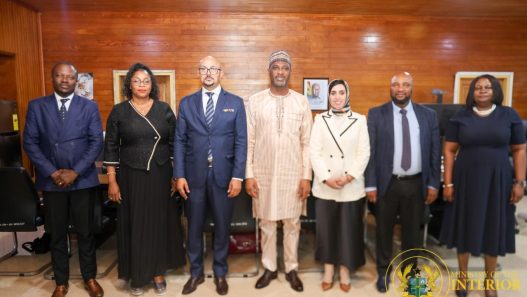Accra, July 2025 – Ghana’s economy is firmly on a recovery path, according to the 2025 Mid-Year Fiscal Policy Review presented by the Minister of Finance, Dr. Cassiel Atto Forson. The report outlines significant fiscal, monetary, and structural improvements that have restored investor confidence, stabilized the Cedi, and improved living standards following years of economic turmoil.
Inherited Crisis, Bold Response
In his presentation of the report, the Finance Minister painted a stark picture of what the government inherited in January 2025: unsustainable debt levels of over GH¢726 billion, massive arrears totaling GH¢67 billion, widespread institutional weaknesses, and failed IMF engagements. The economy had suffered from a collapsed Cedi, runaway inflation, and a wave of business and job losses.
He indicated that the government’s response, anchored on fiscal discipline, social investments, and institutional reforms, has already begun yielding tangible results. Enphasizing that a renewed national consensus was forged through stakeholder dialogues, and the new economic team undertook sweeping reforms backed by the IMF and other development partners.
Major Economic Gains in Just Six Months
From January to June 2025, the Ministry of Finance reported:
- A primary surplus of 1.1% of GDP, beating the 0.4% target.
- Inflation fell from 23.8% in December 2024 to 13.7% by June 2025 – the lowest in four years.
- The Cedi appreciated by 42.6% against the US dollar, reversing nearly all depreciation from 2022–2024 — the sharpest currency rebound in 60 years.
- Public debt dropped by GH¢113.7 billion, bringing the debt-to-GDP ratio down from 61.8% to 43.8% in just six months.
- Gross international reserves rose to US$11.12 billion, providing 4.8 months of import cover.
These milestones led credit rating agency Fitch to upgrade Ghana’s Long-Term Foreign-Currency Issuer Default Rating from Restricted Default to B- with a stable outlook, marking the country’s first credit upgrade since 2021.
Sectors See Strong Growth
The first quarter of 2025 recorded a 5.3% real GDP growth rate – the highest first-quarter performance since 2020. Non-oil GDP grew at 6.8%, driven by:
- Agriculture (6.6%), especially fishing (16.4%);
- Services (5.9%), led by ICT growth of 13.1%;
- Industry (3.4%), with manufacturing up 6.6%.
Strategic interventions such as the 24-Hour Economy, Big Push Infrastructure Programme, and Agriculture for Economic Transformation are credited for this rebound.
Prudent Spending and Social Investment
Despite budget constraints, the government has prioritized essential spending. In the first half of 2025 alone:
- US$700 million was paid to Eurobond holders;
- GH¢10 billion to domestic bondholders;
- GH¢9.1 billion to stabilize the energy sector;
- GH¢4.6 billion to the National Health Insurance Scheme;
- GH¢1 billion to fund Free SHS;
- GH¢895 million to the School Feeding Programme;
- GH¢2 billion to recapitalize the National Investment Bank (NIB), reversing its negative capital adequacy and preserving over 900 jobs.
Public Sector Clean-Up and Reforms
A nationwide payroll audit uncovered over 53,000 separated staff and more than 14,000 unverified workers still on payroll. The government plans to recover GH¢150.4 million in unearned salaries, with strict sanctions for those found culpable. Additionally, 87% of arrears totalling GH¢68.7 billion have been audited, with GH¢3.6 billion already rejected due to irregularities.
Debt Restructuring and the Road Ahead
Parliament has approved the terms of the Memorandum of Understanding with the Official Creditor Committee. Agreements with bilateral creditors are progressing, paving the way for the resumption of stalled projects worth US$3 billion. The government has also established both Cedi and USD Sinking Funds to manage upcoming debt peaks in 2026–2028.
No Revisions to Growth Targets
The Finance Ministry affirmed that there would be no revision to macroeconomic targets for 2025, maintaining:
- Real GDP growth of at least 4.0%
- End-year inflation of 11.9%
- Primary surplus of 1.5% of GDP
- Reserves covering more than 3 months of imports
From near-collapse to cautious optimism, Ghana’s economic turnaround within just six months has been described as historic. The government credits its success to tough reforms, restored policy credibility, and sustained dialogue with stakeholders.
As the country prepares for the second half of 2025, the focus remains on consolidating gains, building buffers, completing key projects, and ensuring that growth translates into real benefits for citizens.
Source: Clement Akoloh||parliamentnews360.com
